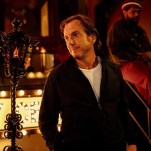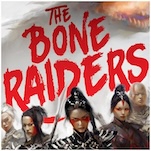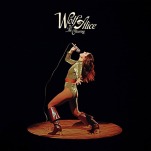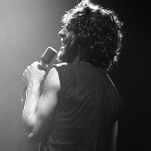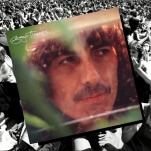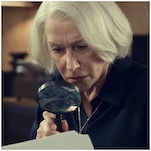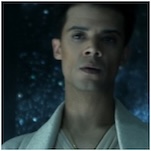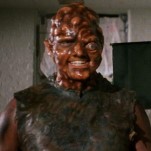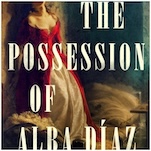Frank Black on Songwriting, The Catholics and Revisiting Old Material
Charles Thompson—aka Black Francis, aka Frank Black—has been somewhat active in recent years with the Pixies, sans Kim Deal, of course. Whether he’s adding to or damaging the band’s legacy depends on whom you ask.
But there’s another body of work with his former band the Catholics that hasn’t been talked about for a while. They called it a day in 2003 when Black reformed the Pixies, leaving six records. The Catholics kept it straighter than Black’s better-known band on records like Pistolero and Black Letter Days, digging into Americana and classic rock, while retaining some of Black’s notable quirks.
He just released Frank Black and the Catholics: The Complete Recordings on Cooking Vinyl, and that’s literally what it is—seven discs, featuring every song ever recorded by the band (plus demos and B-sides) all arranged alphabetically as they have been known to do with albums and setlists. It’s a body of work worth revisiting. And that’s exactly what we did, spending a solid 45 minutes talking with Black about what makes his songwriting tick, doing things alphabetically and scratching his Tom Petty itch.
Paste: In your eyes or, I guess, your ears, what makes the Catholics different from the Pixies or your solo material?
Frank Black: I guess the main thing, and this is from a technical aspect, is that it’s all recorded live. I would say in general that the Catholics material—not all of it, but a lot of it—tends to be rooted in this American rock and roll kind of aesthetic. Sort of reared in lots of ’70s music. It’s less arty, I would say. It’s not trying to be mainstream music or anything like that, but it’s sort of more like a Rolling Stones record, or Bob Dylan. A Tom Petty. But I don’t want to be black and white about this, because the Pixies have their Tom Petty moments, too.
Paste: A lot of it probably has to do with the people you’re playing with.
Black: Some of it has to do with the people, because all of the guitarist players that played in the Catholics—and there were three—were all sort of, you know, kind of chops, hot-rod kind of guitarists. And a couple of them could play pedal-steel guitar. So when you have people like that playing with you, you can scratch a lot of itches. You can go like, “Well I wanna play something that sounds like Johnny Cash, or I wanna do something that sounds like Bob Dylan’s Blonde on Blonde.” I mean, sure, you want to be creative, you want to be original, you want to write songs that are good regardless of whatever itches you’re trying to scratch, but sometimes, you know, I consider it a treat to be able to be recording, and do something that is in a certain genre or certain feel. It’s not about, “Oooh, how can I impress the indie rock music business world?” Don’t get me wrong I don’t go through that kind of thought process when I’ve done artier records with the Pixies, either. You don’t sit around and calculate—you do what feels good to you, or what feels natural. It’s not really about that, you know. It’s just fucking music.
-

-

-

-

-

-

-

-

-

-

-

-

-

-

-

-

-

-

-

-

-

-

-

-

-

-

-

-

-

-

-

-

-

-

-

-

-

-

-

-




